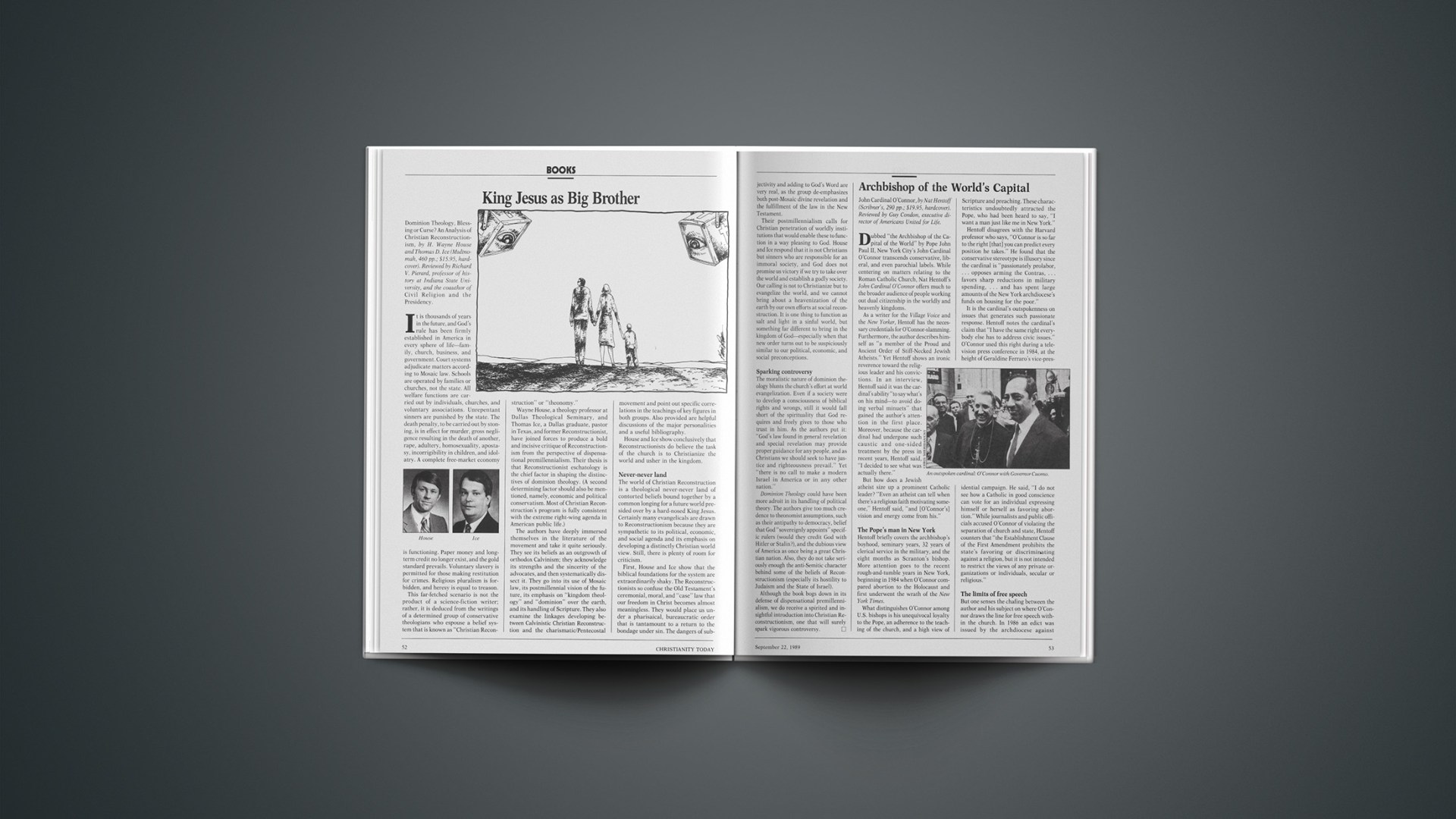Evolution: The Great Debate, by Vernon Blackmore and Andrew Page (Lion, 192 pp.; $27.95, hardcover; $19.95, paper). Reviewed by Charles E. Hummel, faculty specialist with InterVarsity Christian Fellowship, and author of The Galileo Connection.
Not another book on the evolution controversy! Yes, but this is one that makes a significant contribution to the subject.
At the outset authors Vernon Blackmore, with graduate degrees in science and theology, and Andrew Page, a senior lecturer in biology at Sheffield City Polytechnic, recognize the human element of personal preferences and subconscious cultural and philosophical views that everyone brings to a study of science and religious faith. The book presents more than a desiccated history of ideas; here is a fascinating story of individual scientists (and science) influenced by social and political creeds.
Beginning with the Greeks, Blackmore and Page sketch the history of the idea of evolution and the contributions of early nineteenth-century geologists and biologists Cuvier, Lyell, Linnaeus, Buffon, Buckland, and Lamarck, whose discoveries provided the soil in which the seed of Darwin’s thought flowered.
The presentation of Darwin’s research and writing is set squarely in the swirling currents of his time. Most of the elements of his theory were already widely known; his genius assembled them to reveal structure where others saw only chaos. Nevertheless, the new theory fomented vigorous debate.
The authors describe how Darwin’s theory was received by ordinary people and within the church. Arguments were couched in military language. The invective of evolution’s apologist Thomas Huxley, the polemic of ardent churchmen, and pamphlets in the popular press created a picture of science and theology at war over a doctrine of animal origins.
Soon Darwinism, at the hands of Ernst Haeckel in Germany, expanded to become a philosophy of change and progress, an entirely new perspective on human knowledge. On the other hand, Asa Gray at Harvard, a devout evangelical Christian, reconciled natural selection and Christian belief. Friends and foes of Darwin’s theory proliferated among both scientists and theologians.
Twentieth-century developments include the growth of evolutionism as a pervading philosophy, the rise of scientific creationism, and current issues in evolutionary theory. The authors show how the science of evolution has become so entangled with deeper questions of morality and humanity that it raises a storm of controversy. In such a climate it is difficult to separate issues of science from issues of theology.
The final chapter evaluates the complex contemporary scene from a biblical perspective, contrasting Christian theism with secular naturalism. Concluding pages sketch the biblical view of God the Creator and Sustainer of the universe who is constantly at work in human history.
The authors succeed admirably in achieving the goals they set for themselves. Besides lavish illustrations and photos, the book is filled with enough historical fact and scientific analysis to qualify as a text. At the same time, its style is as readable as a novel.
One weakness, however, is a failure to explain the term literal, which is often misunderstood and misused in connection with interpreting the Bible, especially Genesis 1. The interpretive issue is not literal versus figurative, a question of literary style, but the intent of the author.
Blackmore and Page note that the history of science has often been presented as a victory of the scientific way of picturing the world over outdated religious mythology. They quote an old African proverb that says: “Until the lions have their historians, tales of hunting will always glorify the hunter.” Here the other story is told.










